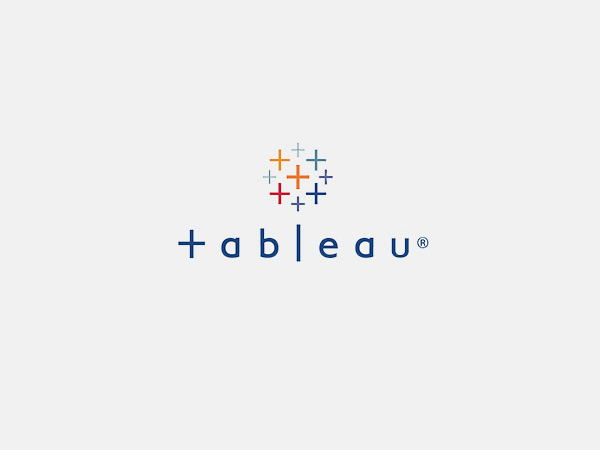Machine learning has ties to statistics. It allows you to detect patterns in the sometimes chaotic mathematical models that exist. Online machine learning courses teach you how to make use of machine learning algorithms in a programming language.
The disruptions caused by (and anticipated disruptions of) artificial intelligence is a reality we have come to live with. You do not need to be a techie to appreciate the many inroads artificial intelligence has made into everyday life. In fact, there is the projection that in a few more years, more and more human tasks will be taken over by computers. This informs the reason why you should be paying attention to machine learning. For anyone versed in machine learning, there is no exhausting the industries in which you can apply your skills. From crime detection to spam filtering, you can be sure to put your skill sets to good use one way or another. Bearing this in mind, we’ve put together 10 online courses that can help you obtain, and improve, your machine learning skill set.
10 machine learning online courses
There are a few things that you should consider before settling on any machine learning course. One of those is the pace. Machine learning is broad, with more than a few components. Learning at your own pace will give you the time to master all the concepts thoroughly. Any online course that you take should fit into your schedule. Thus, you should still be able to, for instance, continue with your regular job while taking the course. Read Top 7 key skills required for Machine Learning jobs
Furthermore, you have to consider the ease of learning. If you are a beginner, you have to prioritize the courses that start with the basics. As already stated, machine learning is somewhat technical and can be confusing even for those with a solid footing in artificial intelligence. If you do not start with the basics, you might get sucked into a confusing maze that will make a waste of the effort you put into the process in the first place. Gauge the skill set you possess at the moment and the level you are at. That will help you settle for the course that best suits you. Also, check out the courses that provide a lot of examples. At the end of your studies, your machine learning skills will be tested outside of the learning environment. You need to pick courses that simulate settings that you can apply your practical skills in. This will make it easier for you to make the transition of applying your skills to real-life scenarios when you are done with the course.
Machine Learning Course by Stanford University
This is perhaps one of the most popular courses on machine learning. Part of its attraction is the fact that the prestigious Stanford University offers it. Another contributor to its popularity is how easy the course is. For a beginner, this course provides you insight into the rudiments of machine learning. You will also get to learn how to apply the skills learned here in everyday activities.
The course content includes topics such as Neural networks, Linear Regression, Logistic Regression, and Linear Algebra. These topics are divided into 18 modules that take an average of 56 hours to complete. It is left for you to determine how to spread the hours, taking into consideration the amount of free time you have and the ease of assimilation. The course provides subtitles in Chinese, Spanish, Hindi, Hebrew, Japanese and English languages.
The course is free and is taken by Andrew Ng, who is quite renowned, particularly seeing as he is the co-founder of the online learning platform, Coursera.
Machine Learning Foundations by the University of Washington
This is another machine learning course that is great for beginners. It is offered by the University of Washington, a great college to get an online degree from. This course is specifically designed to help those whose intention for studying machine learning is to apply it to data analysis. Thus, if you aim to utilize machine learning to improve your business operations, then you should totally check out this course. The course is also free and is part of the university’s Machine Learning Specialization (MLS).
The course offers case studies such as:
- Recommending Products
- Deep Learning: Searching for Images
- Classification: Analyzing Sentiment
- Regression: Predicting House Prices
Carlos Guestrin and Emily Fox take the course. They are both Amazon professors, but while Guestrin is a professor of machine learning in computer science, Fox is a professor of machine learning in statistics. At the end of the course, you will have learned the skill involved in each case study.
Machine Learning by CodeAcademy
Although this course covers the basics of machine learning algorithms, for effective understanding, you should be comfortable with Python 2 functions. The course is a cross between demanding a beginner’s and an intermediate’s level skill. Thus, for instance, a person who is not a newbie, but is looking to improve on their data analysis skill, will find the course pretty helpful. On the other hand, upon completing the 20 hours needed for the course, a complete novice would have obtained the requisite knowledge about the basics of machine learning.
Several of the topics taken in the course include Regression versus classification, Yelp Regression Project, Linear Regression and Honey Production, Prediction of Titanic survival through Logistic Regression, amongst others. There are also periodic quizzes administered to gauge your level of proficiency in the course. This will help you assimilate the course better.
Machine Learning: Clustering and Retrieval by the University of Washington
This course, also by Washington University, is primarily for intermediate level students of machine learning. Here, it is expected that you would have gone through the beginner stages of machine learning already. So, for greater appreciation of what is expected in this course, you should take any of the beginner courses indicated above before undertaking this.
This course is the last in the Machine Learning Specialization of the university. The main case study in the course is entitled, “Finding similar Documents” and is focused on teaching the rudiments involved in clustering and retrieval.
At the end of the course, you should have the skill to find resources without having to read through piles of similar documents. You will also learn how to spot hot topics in documents easily and speedily. While taking the course, you will be assigned various tasks such as Hierarchical Clustering, Mixture Models, Nearest Neighbor Search, etc.
Machine Learning Certification Course by SimpliLearn
With this course, not only do you get a firm grasp of concepts in machine learning, you will also come to appreciate how machine learning interfaces with the digital world. Here, you will come to understand better the changes machine learning is making to the digital world as we know it. Furthermore, you will learn how to harness the skills needed to channel these changes to your benefit.
The course primarily focuses on the skills needed to become a Machine Learning Engineer. You will get to work with real-time data, and you will even get to learn how to utilize Python to make predictions from a data set provided.
The features you will find in this machine learning course include:
- Recommender Systems
- Data manipulation
- Sigmoid probability
- Feature engineering
- Supervised learning flow, etc.
Advanced Machine Learning Specialization
This is a series of machine learning courses that teach advanced skills. The courses offer a wide range of options for anyone seeking to improve their machine learning skills rapidly. These specialization courses are technical, but provide a balanced curriculum for you.
You might find a lot more math here than the other courses. However, you have nothing to worry about. The courses are presented in a straightforward manner that presents practically no challenge. You may have to brush up on your math and calculus skills, but that will not be necessary if you’ve taken the beginner courses.
In the full package offered, you will find the following courses:
- Introduction to deep learning
- Practical Reinforcement Learning
- Deep Learning in Computer Vision
- Natural Language Processing, amongst others.
Admittedly, it will take a while to complete the entire series. Typically, you’ll spend between 8 to 10 months before you get to the end. However, this is understandable, given the nature and scope of what is offered. You will be given some real-time projects to gauge how effective the learning process is. Eventually, when you are done, you would have amassed quite the skill-set any potential employer will be on the lookout for. The course is provided by the National Research University Higher School of Economics and can be found on Coursera.
Become a machine learning engineer by Udacity
This is a nanodegree machine learning course offered on Udacity. After the course, the expectation is that you become a machine learning engineer. This course is quite new but teaches much the same advanced machine learning algorithms as the others. It also promises to harness your skills, so they can be deployed when necessary.
The course requires you to have python language skills of the intermediate level at the least. It takes roughly 12 weeks to complete if you are sticking to the standard 10 hours per week.
This course is offered in collaboration with Amazon and Kaggle. This gives you the benefit of putting your skills to practice using the Amazon Sagemaker. Furthermore, you can also gauge the performance of your models, especially when deployed to a web application.
Machine Learning by Columbia University
This is also an advanced machine learning course and is packed full of math. For you to farewell, you’ll need more than a basic knowledge of Linear Algebra, Calculus and Probability. The course doesn’t teach Python or Octave languages, but you’ll be expected to carry out programming tasks using them. Thus, in addition to brushing up your math skills, you need to make sure you have a basic understanding of those too.
For a lot of folks taking this course, the attraction is the unique way the course handles probabilistic versus non-probabilistic approaches to machine learning. If this is an area that catches your fancy, then you might want to check the course out. This course can be found on Edx.
Free Machine Learning Course on fast.ai
On the fast.ai website, the arrangement and presentation of the courses are commendable. For this machine learning course, the process is fast, relatively easy, and free. The drawback is that you need to have at least one year of experience with Python programming to do well with the course.
The course structure follows the MIT OpenCourseWare style. Hence, the lectures are conducted in classrooms with students in them. Furthermore, the course content is similar to that of the University of San Diego science program. For anyone taking this course, the focus would be on getting the skills, as opposed to getting certified. There is a discussion board, extensive assignments on the course work, and assignments. However, you will be unable to get feedback on the assignments you turn in, and as already stated, no certification is given upon completion of the course.
Free Learning Data science course by Harvard University
In true Harvard University style, this certification course analyzes a lot of data in a bid to explain the scope of the course thoroughly. There is also a lot of question and answer sessions and case studies analysis for the duration of the course. R programming language, data analysis statistical concepts are taught together. The course is fast-paced and may seem overwhelming if you cannot keep up. In the end, you will be expected to implement machine learning algorithms and be able to apply the skills learned to real-world scenarios.
In total, there are 9 courses in the series, with each taking a minimum of 2 weeks and a maximum of 8 to complete. Rafael Irizarry, a Biostatistics professor at Harvard, takes the course.
Conclusion
Machine Learning gives you a nontraditional skill that is in demand at the moment. What is more, with the right course (or sets of courses), you can acquire this necessary skill within a short period. With the suggestions above, you can find your way to the best places to obtain the requisite knowledge that you need to put you ahead. You can always reach us with any questions.
Also, read The 10 Most Popular Groups of Machine Learning Algorithms













